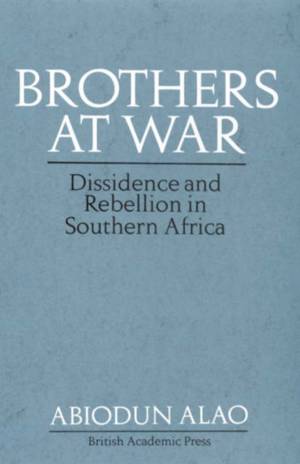
- Afhalen na 1 uur in een winkel met voorraad
- Gratis thuislevering in België vanaf € 30
- Ruim aanbod met 7 miljoen producten
- Afhalen na 1 uur in een winkel met voorraad
- Gratis thuislevering in België vanaf € 30
- Ruim aanbod met 7 miljoen producten
Omschrijving
Civil War in many areas of Southern Africa has caused human disaster on a huge scale. While Zimbabwe alone has largely escaped this, Mozambique has been reduced to the status of the poorest, most aid-dependent state in Africa and UNITA's war in Angola continues. Abiodun Alao's account of the deep-rooted ethnic and ideological divisions in all three territories explores the ways in which this state of almost permanent instability and conflict emerged during and after the struggle for independence, and the extent to which existing tensions within the region were internationalized and exacerbated during the Cold War. While the most significant element in the conflict was the dominant role of the South African state in its pursuit of proxy wars to advance its own regional interests, Alao argues that South Africa did not on its own create the dissident movements or the conditions of conflict. Pretoria had only to fine-tune some of the existing movements to suit its own purposes.
Based on much original research, this book adds a new perspective to our understanding of the formation of the main rebel movements, of their support bases and their transformation into political parties, as well as providing an important account of their relationship with the South African state.
Specificaties
Betrokkenen
- Auteur(s):
- Uitgeverij:
Inhoud
- Aantal bladzijden:
- 224
- Taal:
- Engels
Eigenschappen
- Productcode (EAN):
- 9781850438168
- Verschijningsdatum:
- 31/12/1994
- Uitvoering:
- Hardcover
- Formaat:
- Genaaid
- Afmetingen:
- 145 mm x 216 mm
- Gewicht:
- 612 g

Alleen bij Standaard Boekhandel
Beoordelingen
We publiceren alleen reviews die voldoen aan de voorwaarden voor reviews. Bekijk onze voorwaarden voor reviews.











